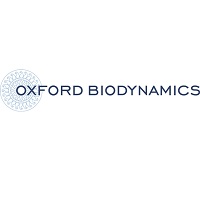Oxford Biodynamics PLC (LON:OBD) Chief Scientific Officer Dr Alexandre Akoulitchev caught up with DirectorsTalk for an exclusive interview to discuss their latest ALS biomarker data
Q1: The latest results presented at Boston CNS World Summit are based on extensive biomarker analysis, multi-centre studies and large patient cohorts, some of them observed repeatedly over a period of 3 and 6 months. Can you tell us more on how Oxford Biodynamics’ work aligns itself with the ALS field, key clinical specialists and institutions?
A1: The results that were presented in Boston is actually a follow-up of very extensive work with several key leaders in the field and very successful results built on a very successful collaboration. We’ve been engaged from the very beginning with Massachusetts General Hospital and Chief of Neurology, Professor Merit Cudkowicz and with the very generous support from Innovate UK, we extended our work in the UK with the University of Oxford, the Nuffield Department of Clinical Neurosciences, Professor Kevin Talbot. In fact, ended up working the three centres in the States, the UK and also in Malaysia where we have a separate subsidiary with the University Hospital Malaya, Professor Goh Khean Jin. All uniquely substantial cohorts of patients, both Caucasian and Asian, and a lot of credit should go to help in guidance, collaboration and clinical expertise.
Q2: Now, the FDA has approved only two drugs for ALS, Riluzole from Sanofi and Radicava from Mitsubishi Tanabe, how would your biomarker work help in more successes in therapeutic developments for ALS?
A2: ALS proves to be a very difficult disease with a lot of failures in clinical development and what we do answers very particular questions relevant from drug development, in particular not only the early pre-symptomatic detection of the disease but also the prognostic stratification so that one can populate a trial, include the right patients early with fast-progressing ALS.
There is multiple evidence that we might be dealing with subtypes within the disease. Our readouts on biomarker platforms are picking systemic and genetic differences. It might be a very valuable addition to all joint efforts today to try to understand the subtypes and match potential treatments, treatments in development with the right sub group of patients.
Q3: The biomarker approach that Oxford Biodynamics has developed and the examples of your applications, how useful is it to other actionable patient stratifications in neurogenerative and neuropsychiatric conditions?
A3: It is very relevant, and we are very glad that, first of all, we’re were able to build up and present evidence within ALS taking some of the signatures for validation already but also the field itself has been paying very close attention to genome architecture, chromosome conformation signatures, all the modalities we’re working with.
Within the peer group space, there is significant evidence that our platform, our operation, would be very applicable to such diseases as Alzheimer’s, Multiple Sclerosis, many other neurogenerative conditions, autism, post-traumatic stress disorder, depression.
The very nature of what we do and what we measure brings out readouts based on blood so we’re dealing with liquid biopsy, non-invasive results, which from a clinical practice point of view, it’s particularly valuable today.










































